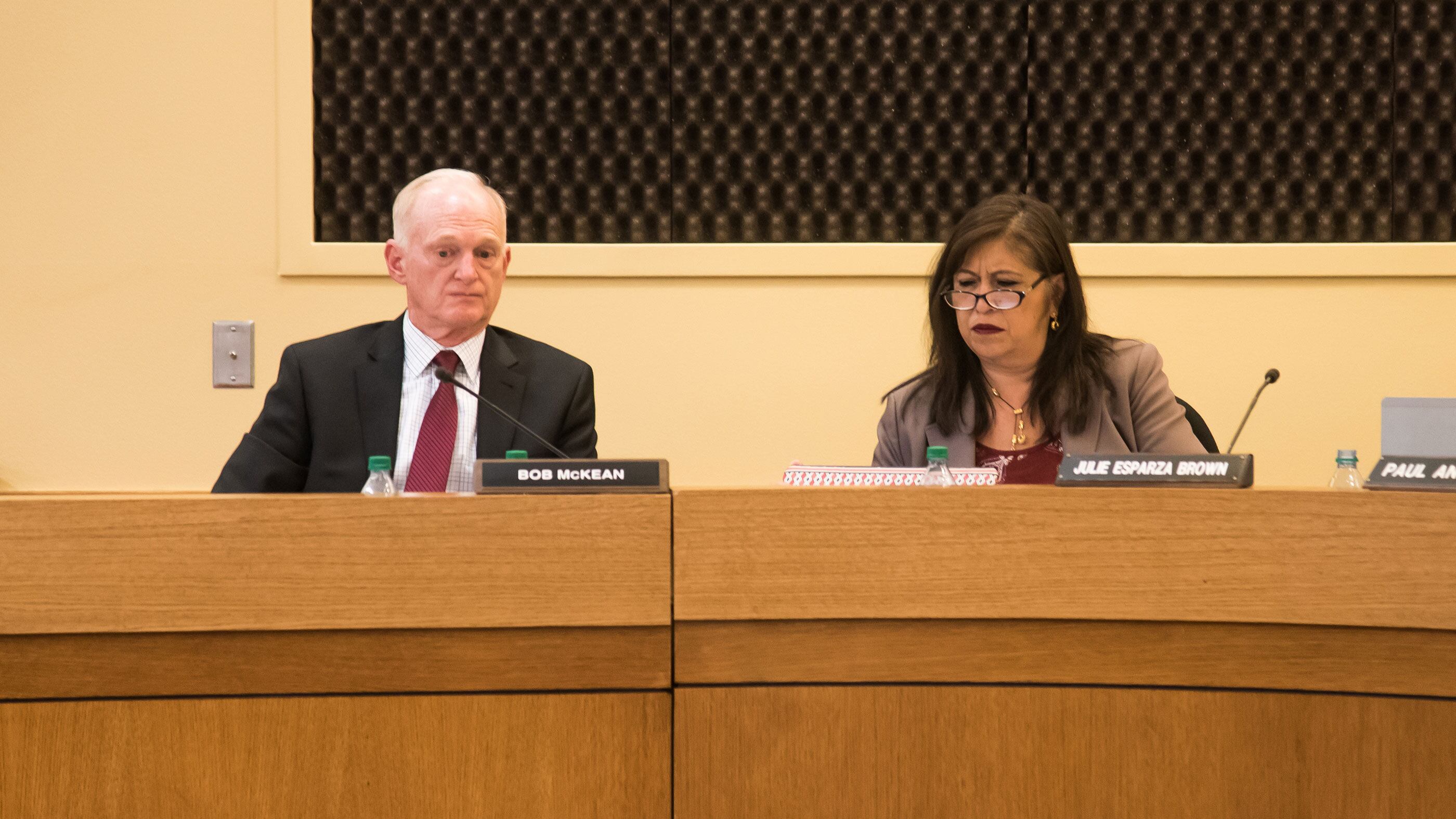Over the vociferous objections of Portland School Board member Steve Buel, a divided school board decided Monday to keep its superintendent search under wraps until the board announces a final decision next year.
That outcome—a 4-3 decision with board member Mike Rosen joining Julie Esparza Brown, Amy Kohnstamm and Pam Knowles in the majority—followed a lengthy debate about how and whether to publicly name three or more finalists.
As with all matters concerning the school board for Portland Public Schools these days, an undercurrent of mistrust among the board ran through the debate at the Monday night work session, with several members saying more than once they didn't trust their colleagues to keep the names of job candidates secret.
Because of that suspicion, the board initially appeared to tilt toward the idea of making the names of finalists public and convening public meetings for a community vetting process. Some on the board said that would allow PPS representatives to visit the home districts of the job candidates.
But Knowles and others worried aloud that publicizing finalists' names would drive away candidates who don't want to alert their current employers to their job hunts. Knowles made the case those could be among the best candidates. "I don't believe we will get the top notch" with an open process, she said.
At the same time, Knowles (and Esparza Brown and Kohnstamm) expressed concern that the process wouldn't remain confidential because of leaks. "It is likely not going to stay confidential," Kohnstamm told her colleagues.
The board spent little time contemplating whether a secret process would have unintended consequences, such as attracting candidates who have poor relationships with their current boards and who risk little by jumping into a confidential process. Rosen mentioned that as a possibility but appeared to get little traction with the idea.
Buel, though, seized on other downsides, saying the board would face backlash from the public for not allowing meaningful public input on specific candidates. Esparza Brown and others questioned what constituted "meaningful" input, noting they'd already drawn representative responses from community members on the qualities they seek in the next superintendent.
"We're doing the same thing we've done in the past," Buel said, calling the decision to keep the process confidential a huge mistake. (This characterization drew rebukes from Kohnstamm, who asked Buel to consider whether his remarks were helpful to the search process going forward.)
To help with the vetting, the board said it would convene a group of stakeholders to secretly deliberate and advise them on their selection. (During the meeting, the group disagreed on how best to select the stakeholders.) The board, when discussing whether it could keep the search process confidential, also expressed concern that leaks could spring from this stakeholder group, even though members would be asked to sign confidentially agreements.
Student representative Aliemah Bradley served as peacekeeper on the board, addressing Buel's complaints not by shaming him but by encouraging him to help the board make the stakeholder group the best it could be. (Sidenote: That summary doesn't do the teen's work justice; Bradley is definitely someone to watch.)
Koehler, who started the discussion by steering it toward the idea of making finalists public, accepted the decision.
In a text message to WW after the meeting, he championed the board's new take.
"We will make sure the stakeholder group is representative and provides quality public input to the board," he wrote. "Today we have involved over 3,000 people. The final decision is the board's and the process we are undertaking will yield a terrific superintendent for Portland."
Back in 2007, the Portland School Board named only one finalist in its search for a superintendent: Carole Smith.

